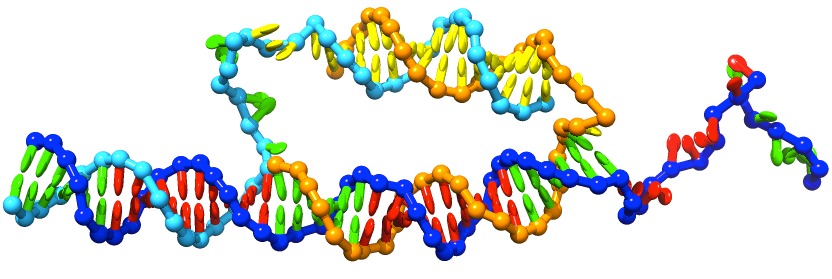|
|
Optimizing DNA nanotechnology through coarse-grained modelling: A two-footed DNA walker
Thomas E. Ouldridge, Rollo Hoare, Ard A. Louis, Jonathan P.K. Doye, Jonathan Bath and Andrew J. Turberfield
ACS Nano 7, 2479-2490 (2013)

Abstract
DNA has enormous potential as a programmable material for creating artificial nanoscale structures and devices. For more complex systems, however, rational design and optimization can become difficult. We have recently proposed a coarse-grained model of DNA that captures the basic thermodynamic, structural and mechanical changes associated with the fundamental process in much of DNA nanotechnology, the formation of duplexes from single strands. In this article we demonstrate that the model can provide powerful insight into the operation of complex nanotechnological systems through a detailed investigation of a two-footed DNA walker that is designed to step along a reusable track, thereby offering the possibility of optimizing the design of such systems. We find that applying moderate tension to the track can have a large influence on the operation of the walker, providing a bias for stepping forward and helping the walker to recover from undesirable overstepped states. Further, we show that the process by which spent fuel detaches from the walker can have a significant impact on the rebinding of the walker to the track, strongly influencing walker efficiency and speed. Finally, using the results of the simulations, we propose a number of modifications to the walker to improve its operation.The full paper is available from ACS Nano and for non-subscribers from ACS articles on request